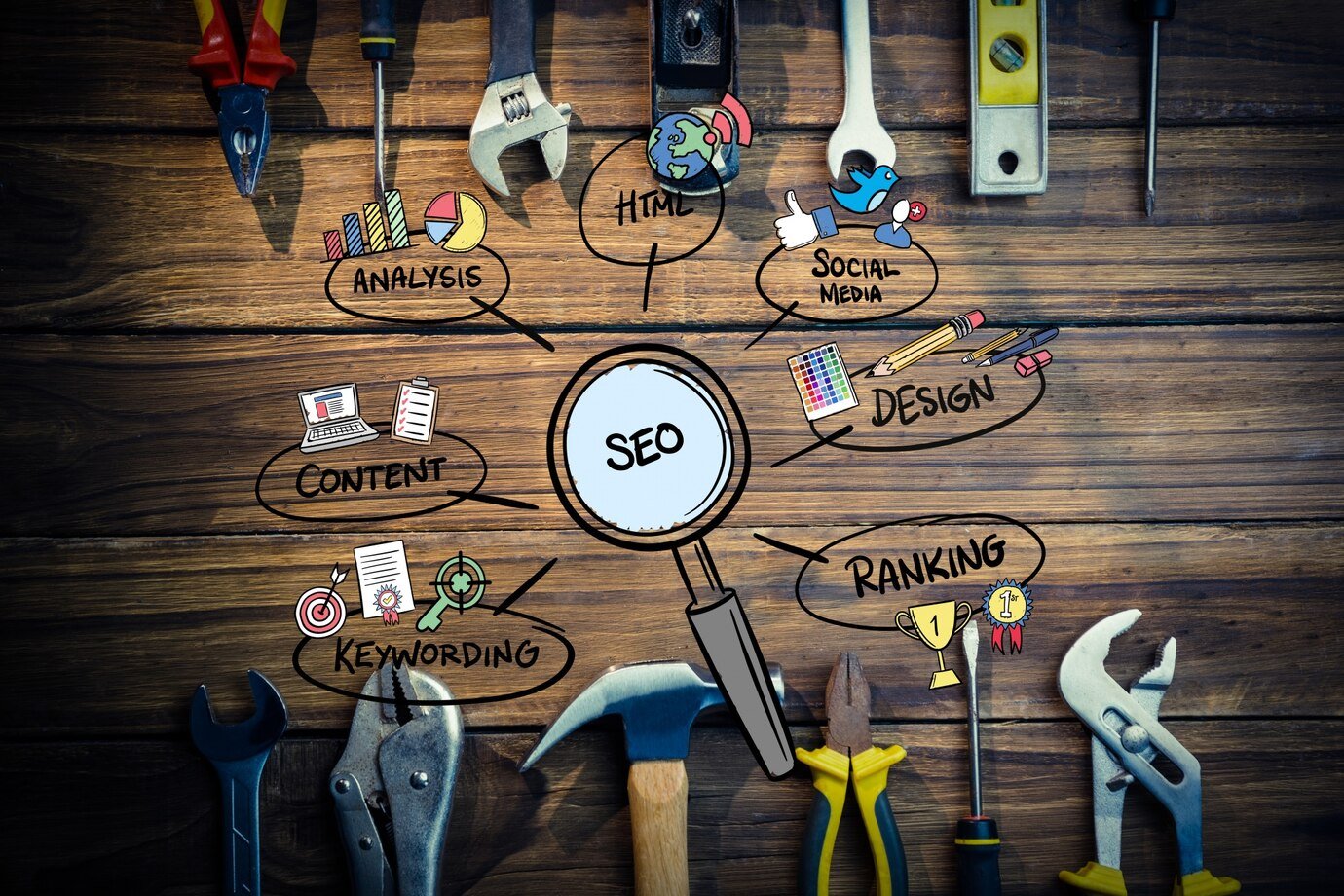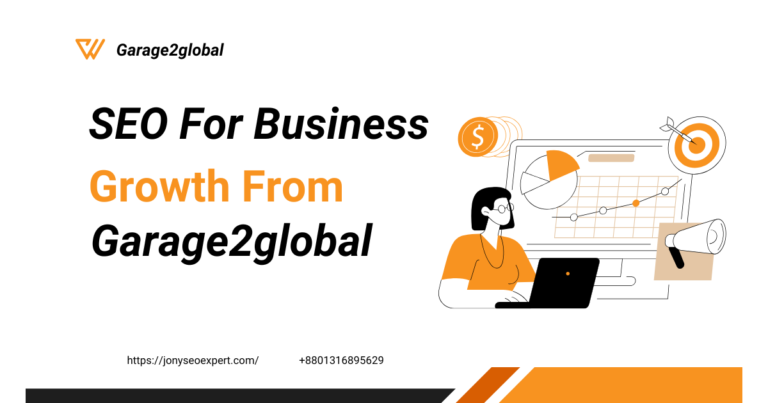SEO marketing services help your business grow online. They help people find your website on search engines like Google. Today, most people search online before they buy anything. If your site does not show on Google, you lose customers. That is why SEO is important. When you work with an SEO Service Provider in BD, you get expert help to rank your site, get traffic, and grow sales.
This guide will explain SEO marketing services in very simple words. You will learn what SEO is, how it works, what services are included, and why it matters for your business.
Understanding SEO Marketing Services
SEO stands for Search Engine Optimization. It means making your website rank higher on Google, Bing, or Yahoo. Most people click only on the first few results. SEO marketing services make sure your business shows up in those spots.
These services cover many tasks such as keyword research, on-page SEO, link building, technical fixes, and content writing. Unlike ads, SEO gives you organic growth. This means once your site is optimized, you keep getting free traffic over time.
In simple words, SEO makes your website easy to find, easy to use, and trusted by both search engines and users.
Why Do Businesses Need SEO Marketing Services?
Today, most people search online before they buy anything. If your site does not show up on page one, your competitors will get those customers.
Here’s why SEO is key:
-
More Traffic – More visibility means more visitors.
-
Brand Awareness – High rankings build trust.
-
Better ROI – SEO gives long-term results compared to ads.
-
Stay Ahead – Beat competitors who don’t use SEO.
-
Local Reach – GEO-focused SEO attracts nearby customers.
Types of SEO Marketing Services
SEO marketing services come in different types. Each type helps a business in a specific way. Some focus on local reach. Some focus on sales. Others improve website health. Below are the main types of SEO marketing services explained in simple words.
1. On-Page SEO Services
On-page SEO works on your website pages. It helps search engines understand your content.
This service includes:
-
Page titles
-
Meta descriptions
-
Headings
-
Keyword use
-
Internal links
-
Image optimization
Good on-page SEO helps pages rank faster.
2. Off-Page SEO Services
Off-page SEO works outside your website. It builds trust and authority.
This service includes:
-
Backlink building
-
Brand mentions
-
Social signals
-
Directory listings
Strong off-page SEO improves domain strength.
3. Technical SEO Services
Technical SEO fixes backend issues. It helps search engines crawl your site.
This service includes:
-
Site speed
-
Mobile-friendly design
-
Secure HTTPS
-
XML sitemap
-
Crawl error fixes
Without technical SEO, rankings drop.
4. Local SEO Services
Local SEO helps nearby people find your business.
This service is best for:
-
Local shops
-
Doctors
-
Service companies
-
Restaurants
Local SEO includes:
-
Google Business Profile
-
Local keywords
-
Map rankings
-
Customer reviews
It brings local leads and calls.
5. E-commerce SEO Services
E-commerce SEO helps online stores sell more.
This service focuses on:
-
Product pages
-
Category pages
-
Buyer keywords
-
Site structure
Good e-commerce SEO increases sales without ads.
6. Content SEO Services
Content SEO improves written content. It attracts users and answers questions.
This service includes:
-
Blog writing
-
Page content
-
FAQs
-
Guides
Quality content builds trust and traffic.
7. Keyword Research Services
Keyword research finds what users search for.
This service includes:
-
Search terms
-
User intent
-
Competition analysis
-
Profit keywords
Good keywords bring the right visitors.
8. SEO Audit Services
SEO audits find problems on a website.
This service checks:
-
Site health
-
Content gaps
-
Technical issues
-
Link quality
Audits help plan better SEO.
9. Mobile SEO Services
Mobile SEO improves site use on phones.
This service includes:
-
Responsive design
-
Fast load speed
-
Easy navigation
Most users search on mobile today.
10. Voice Search SEO Services
Voice SEO helps users who search by voice.
This service focuses on:
-
Question-based keywords
-
Short answers
-
Natural language
Voice search is growing fast.
11. International SEO Services
International SEO targets users in many countries.
This service includes:
-
Country targeting
-
Language SEO
-
hreflang tags
It helps global business growth.
12. White-Hat SEO Services
White-hat SEO follows Google rules.
This service uses:
-
Ethical methods
-
Real content
-
Natural links
It gives safe and long-term results.
Benefits of SEO Marketing Services
SEO marketing services help your business grow online in a smart way.
They bring real users to your website.
They also build trust and long-term value.
Below are the key benefits explained in very simple words.
1. More Website Traffic
SEO helps your site rank higher on Google.
Higher rank means more clicks.
More clicks mean more visitors.
This traffic is free and organic.
2. Better Quality Visitors
SEO targets people who are already searching.
These users need your product or service.
This means better leads and higher chances of sales.
3. Builds Trust and Credibility
People trust Google results.
Websites on top look more reliable.
SEO helps your brand earn that trust.
4. Cost-Effective Marketing
SEO costs less than paid ads over time.
You do not pay for every click.
Once ranked, traffic keeps coming.
5. Long-Term Results
Ads stop when the budget ends.
SEO keeps working for months and years.
This makes SEO a long-term investment.
6. Improves Brand Awareness
When people see your site often, they remember you.
SEO increases brand visibility.
This helps grow your brand name.
7. Better User Experience
SEO improves site speed and structure.
It makes your website easy to use.
Happy users stay longer and return again.
8. Higher Conversion Rate
SEO brings the right audience.
Right users take action.
This leads to more calls, sales, or sign-ups.
9. Supports Local Business Growth
Local SEO helps nearby customers find you.
It increases calls, visits, and local leads.
Perfect for small and service-based businesses.
10. Measurable Results
SEO results are easy to track.
You can see traffic, ranking, and growth.
This helps improve strategy over time.
How to Choose the Right SEO Marketing Services
The right SEO provider makes a big difference. Here’s how to pick one:
-
Check their experience.
-
Ask for case studies.
-
Look for custom plans (not one-size-fits-all).
-
Demand transparency.
-
Make sure they use advanced SEO tools.
In South Asia, hiring the best SEO specialist in Bangladesh is smart. They offer skilled services at good rates.
SEO Marketing Services vs. Traditional Marketing
Traditional ads like TV and billboards cost a lot and are hard to track. SEO is cheaper, targeted, and measurable. You can see who visits your site, how long they stay, and what they click. This helps you refine your strategy.
Future of SEO Marketing Services
SEO is always growing. With AI, voice search, and machine learning, new trends like AEO (Answer Engine Optimization) are rising. Businesses need to optimize for Siri, Alexa, and Google Assistant.
Also, Semantic SEO and AI-driven content are the future. Search engines now focus more on meaning and user intent than just keywords.
Why Hire the Best SEO Specialist in Bangladesh?
Bangladesh is now a digital marketing hub. Global businesses hire SEO experts here because:
-
They offer affordable packages.
-
They know the latest SEO trends like Semantic SEO and AEO.
-
They understand local and global markets.
-
They deliver fast, proven results.
Final Thoughts
SEO marketing services are not only about Google rankings. They build trust, grow your reach, and help you connect with your audience. From keyword research to technical fixes, SEO covers all you need to succeed online.
By investing in SEO, you give your business a chance to compete globally while staying strong locally. If you want results, hiring the best SEO specialist in Bangladesh can help you grow.
SEO is the future of digital marketing. Start now, and enjoy the benefits sooner.





